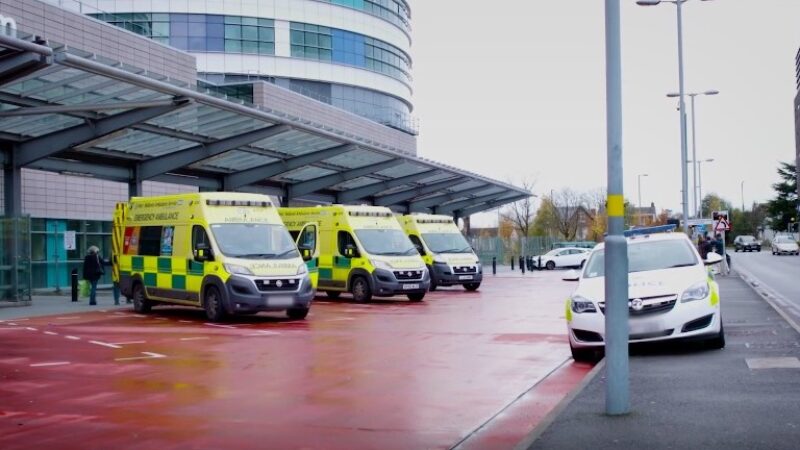
Labour has called on the government to take “urgent action” to prepare the NHS for the winter and a second Covid wave after new analysis by the party found “hundreds of extreme risks to patient and staff safety”.
The party has reviewed official documents from 114 non-specialist acute NHS England trusts published between March and August this year and found that over half of reported hazards were classed as “significant” or “extreme”.
The risks included some trusts being unable to continue cancer services due to a lack of oncologists and one hospital warning that a collapsing roof was posing a “direct risk to life and safety of patients, visitors and staff”.
Jonathan Ashworth said: “In a normal winter, these risks would be worrying. In the coming winter, with the incompetent handling of the test and trace system leaving the NHS wide open and poorly supported, they take on a whole new meaning.”
Labour has argued that Covid has exposed the “detrimental long-term impact of Tory underfunding” as the majority of risks were linked to insufficient funding, staff shortages, failing equipment and deteriorating buildings.
The Shadow Health Secretary added: “We urgently need a commitment from ministers to fix the problems with test and trace and a timetable by which these issues will finally be sorted.
“On top of this, it is vital that ministers confirm that the NHS will get the additional support it needs to address these risks. Frontline staff and patients cannot be made to carry the can for Boris Johnson and Matt Hancock’s incompetence.”
Of the 114 NHS trusts analysed by the Labour Party, 83% reported workforce shortages, including hospitals in Bournemouth and Derby that said they did not have enough skilled staff to safely manage cancer care.
84% reported direct risks to patient care and safety, 82% reported a variety of directly Covid-related risks and a further 69% of trusts expressed fears about infrastructure such as estates, facilities, equipment or IT.
Among those worried about infrastructure problems was the Queen Elizabeth Hospital in King’s Lynn, which warned that a potential catastrophic failure in their roof was risking the safety of all those in the building.
Bradford Teaching Hospitals Trust expressed fears that its inability to properly regulate the ventilation in operation theatres would potentially lead to “an increased risk of infection” for patients.
The Yorkshire-based NHS trust also warned that there was a chance that “patients may deteriorate and or receive suboptimal treatment” due to growing shortages of a variety of vital medical supplies.
66% of consulted trusts reported financial problems, including the Liverpool Women’s NHS foundation Trust that said it would not be able to survive past the current year without further monetary support.
University College London Hospitals Trust, which treats hundreds of thousands of patients each year and employs over 8,000 staff, warned that its current “level of income” was “insufficient to cover the costs of the trust’s activity”.
A further 84% reported direct risks to patient care and safety, with one trust that is responsible for hospitals in Middlesbrough and Northallerton saying changes to their maternity ward was risking the lives of mothers and babies.
Reacting to the new Labour analysis, GMB national officer Rachel Harrison said: “These shocking findings expose the desperate state of health funding as we approach winter and the second wave.
“Our healthcare heroes deserve better. That means safe staffing levels and a proper pay increase, not dangerous buildings and budgets that can’t make ends meet.
Harrison concluded: “Years of underfunding have left NHS workers underpaid, overstretched and demoralised. It’s time for a full funding settlement that gives the NHS the resources it needs.”
When the Tories took power in 2010, George Osborne announced sweeping cuts to the NHS followed shortly afterwards with a market-oriented restructuring of the health service under the then Health Secretary Andrew Lansley.
Approximately 32,000 overnight beds have been lost from hospitals in England over the last decade. When the pandemic hit the UK, the country ranked 24th among European countries for its numbers of critical care beds.




More from LabourList
‘Unity or division’: Starmer’s message to voters in Gorton and Denton
Almost half of Labour members oppose plans to restrict jury trials, poll finds
‘How Labour can finally fix Britain’s 5G problem’